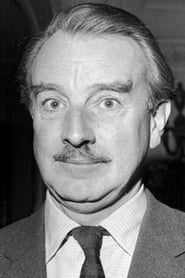 James Hadley Chase
London, England, UK
James Hadley Chase
London, England, UK

James Hadley Chase (24 December 1906 – 6 February 1985) was an English writer. While his birth name was René Lodge Brabazon Raymond, he was well known by his various pseudonyms, including James Hadley Chase, James L. Docherty, Raymond Marshall, R. Raymond, and Ambrose Grant. He was one of the best known thriller writers of all time. The canon of Chase, comprising 90 titles, earned him a reputation as the king of thriller writers in Europe. He was also one of the internationally best-selling authors, and to date 50 of his books have been made into films.
René Lodge Brabazon Raymond (James Hadley Chase) was born on 24 December 1906 in London, England. He was the son of Colonel Francis Raymond of the colonial Indian Army, a veterinary surgeon. His father intended his son to have a scientific career and had him educated at King's School, Rochester, Kent.
Chase left home at the age of 18. In 1932, Chase married Sylvia Ray, and they had a son. In 1956, they moved to France. In 1969, they moved to Switzerland, living a secluded life in Corseaux-sur-Vevey, on Lake Geneva. Chase died there on 6 February 1985.
During World War II he served in the Royal Air Force, achieving the rank of Squadron Leader. He edited the RAF journal with David Langdon and had several stories from it published after the war in the book Slipstream: A Royal Air Force Anthology.
After Chase left home at the age of 18, he worked in sales, primarily focusing on books and literature. He sold children's encyclopaedias, while also working in a bookshop. He also served as an executive for a book wholesaler, before turning to a writing career that produced more than 90 mystery books. His interests included photography, of a professional standard, reading, and listening to classical music and opera. As a form of relaxation between novels, he put together highly complicated and sophisticated Meccano models.
Prohibition and the ensuing Great Depression in the US (1929–39) had given rise to the Chicago gangster culture prior to World War II. This, combined with Chase's book trade experience, convinced him that there was a big demand for gangster stories. After reading James M. Cain's novel The Postman Always Rings Twice (1934), and having read about the American gangster Ma Barker and her sons, and with the help of maps and a slang dictionary, he wrote No Orchids for Miss Blandish in his spare time, he claimed over a period of six weekends, though his papers suggest it took longer. The book achieved remarkable notoriety and became one of the best-selling books of the decade. It was the subject of the 1944 essay "Raffles and Miss Blandish" by George Orwell. Chase and Robert Nesbitt adapted it to a stage play of the same name which ran in London's West End to good reviews. The 1948 film adaptation was widely denounced as salacious due to the film's portrayal of violence and sexuality. Robert Aldrich did a remake, The Grissom Gang, in 1971. ...
Source: Article "James Hadley Chase" from Wikipedia in English, licensed under CC-BY-SA 3.0.


























































